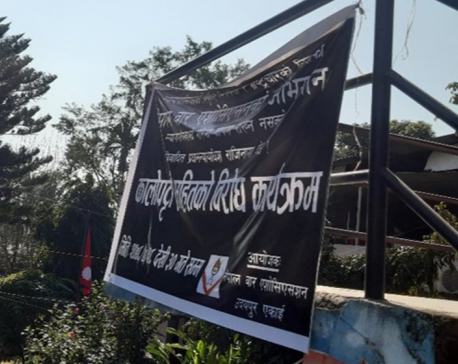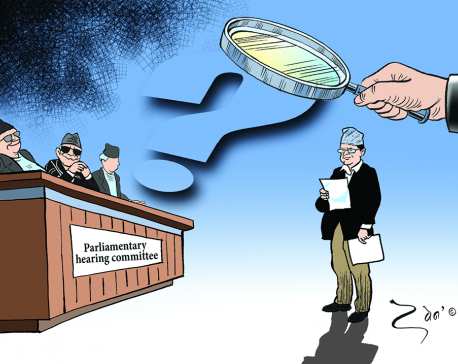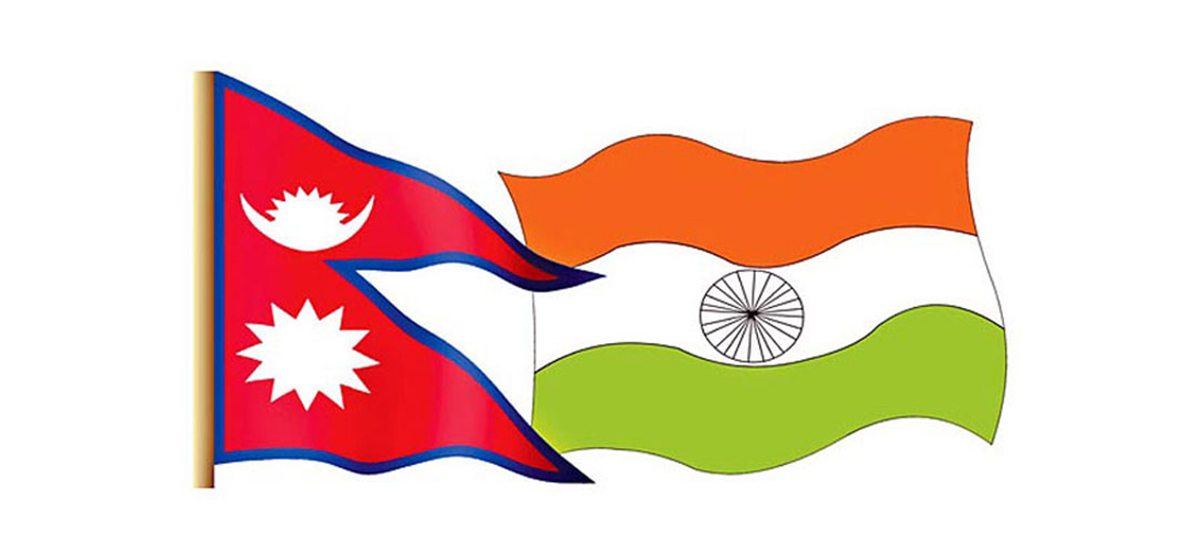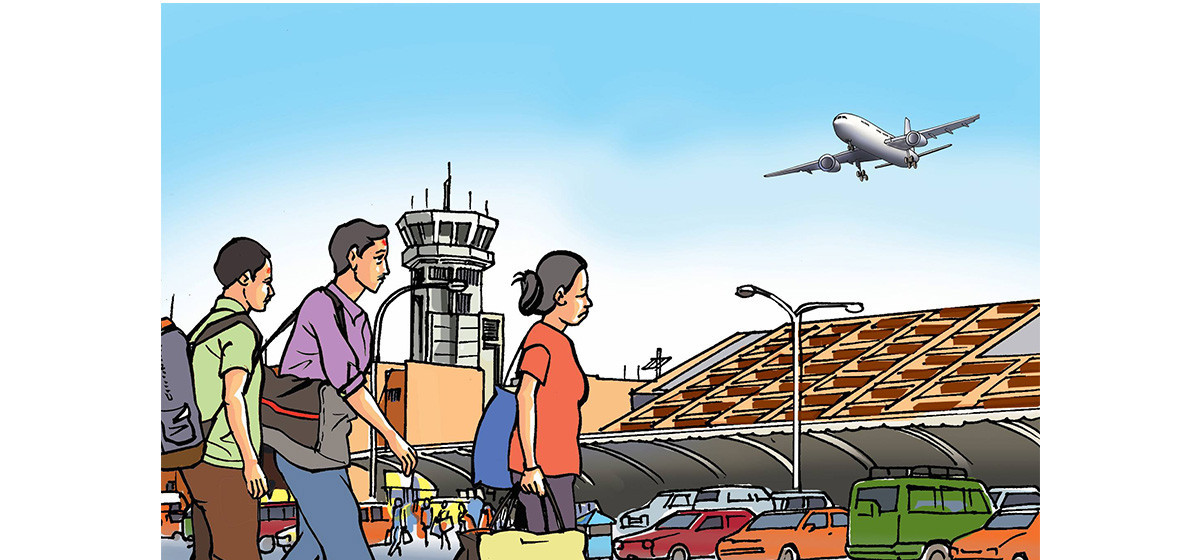
OR
Stop politicization of judiciary
Published On: August 5, 2018 12:25 AM NPT By: Republica | @RepublicaNepal
For the first time in Nepal’s history of vetting nominees for higher constitutional posts, the Parliamentary Hearings Committee (PHC) on Friday rejected the candidate nominated by Constitutional Council for the post of chief justice of the Supreme Court. This is unprecedented in Nepal because no candidate in the past—even those with tainted characters and questionable track records—had been held up by the parliamentary committee, which is why the hearings committee was called ‘rubber stamp’ of political parties. This time, however, the PHC has rejected Deepak Raj Joshee’s nomination citing his lack of vision to reform the court and many other controversies around his academic certificates. His eligibility for the top job has been questioned especially after his academic certificates from high school were found to be dubious. Besides, Joshee has also delivered controversial judgments, such as awarding public land in Handigaun and Baluwatar to individuals through faulty order, ruling to allow two casinos, earlier closed by the government, to operate though they had refused to pay tax amounting to millions of rupees, and more.
During confirmation hearing at the PHC, Joshee had no convincing defence to these allegations and he is reported to have responded to lawmakers with “arrogance,” addressing them as “friends” instead of using the word honorable so much so that PHC Chair Laxman Lal Karna had to order the Parliament-Secretariat to remove the wordings from the records. Given the controversies on more than one issue, Joshee was not the right person for the top job in judiciary. Joshee’s case raises multiple questions on multiple fronts. How do the individuals like Joshee, or his predecessor Gopal Parajuli, manage to reach top public posts despite their questionable track records, and tainted characters? It is rather distressing that we are witnessing the same situation in the judiciary after the end of Gopal Parajuli episode in March. He was dragged in and implicated in as much or even more serious allegations: fraudulent birth and academic certificates, questionable verdicts, attempted media censorship and so on. After Parajuli was made to step down, it was thought, his successor would be better than him. Now we find Joshee is as controversial as Parajuli.
It goes without saying all this is the result of practice of appointing political cadres as judges and justices. The practice of elevating the party men to top constitutional posts started as early as 1990, when Nepali Congress was ruling, continued through 2007 when Congress and UML ruled for most of the times and became almost institutionalized after 2007 when Congress, erstwhile CPN-UML and Maoist Center (now Nepal Communist Party) ruled. The mess, we are witnessing, is the fallout of politicization and all parties are responsible for this. In Joshee’s case, ruling and opposition parties stood poles apart. While Nepali Congress supported Joshee blindly as he was loyal to the main opposition party, NCP stood against him. Would NCP take similar stand if Joshee was its cadre? Perhaps it would not and this is where the problem lies. Our parties defend even the worst of the candidates if they are close to them and stay mum or protest if the person being appointed comes from different political group. This is the root of all problems. Excessive politicization has deeply eroded credibility of our judiciary. PHC’s rejection has stalled the prospect of a controversial figure get to the top. Political parties, ruling party in particular, should ensure that whoever succeeds Joshee will be of higher moral character and integrity, greater competence and unquestionable character.
You May Like This

Lawyers stage protests against Chief Justice Rana in Udayapur
UDAYAPUR, Nov 15: Lawyers affiliated to Nepal Bar Association (NBA), Udayapur district chapter, have staged a protest against Chief Justice... Read More...

Away with hearing system
Our parliamentary hearing system has not become anything more than a ritual. We need to do away with it through... Read More...

House meeting postponed to avoid tussle with judiciary
KATHMANDU, May 7: Parliament’s meeting has been postponed till after the first phase of local level elections, amid confusion over whether... Read More...





Just In
- Weather expected to be mainly fair in most parts of the country today
- 120 snow leopards found in Dolpa, survey result reveals
- India funds a school building construction in Darchula
- Exploring opportunities and Challenges of Increasing Online Transactions in Nepal
- Lack of investment-friendly laws raises concerns as Investment Summit approaches
- 550,000 people acquire work permits till April of current fiscal year
- Fixing a win by outlawing dissent damages democracy
- MoHP cautions docs working in govt hospitals not to work in private ones











_20220508065243.jpg)
Leave A Comment